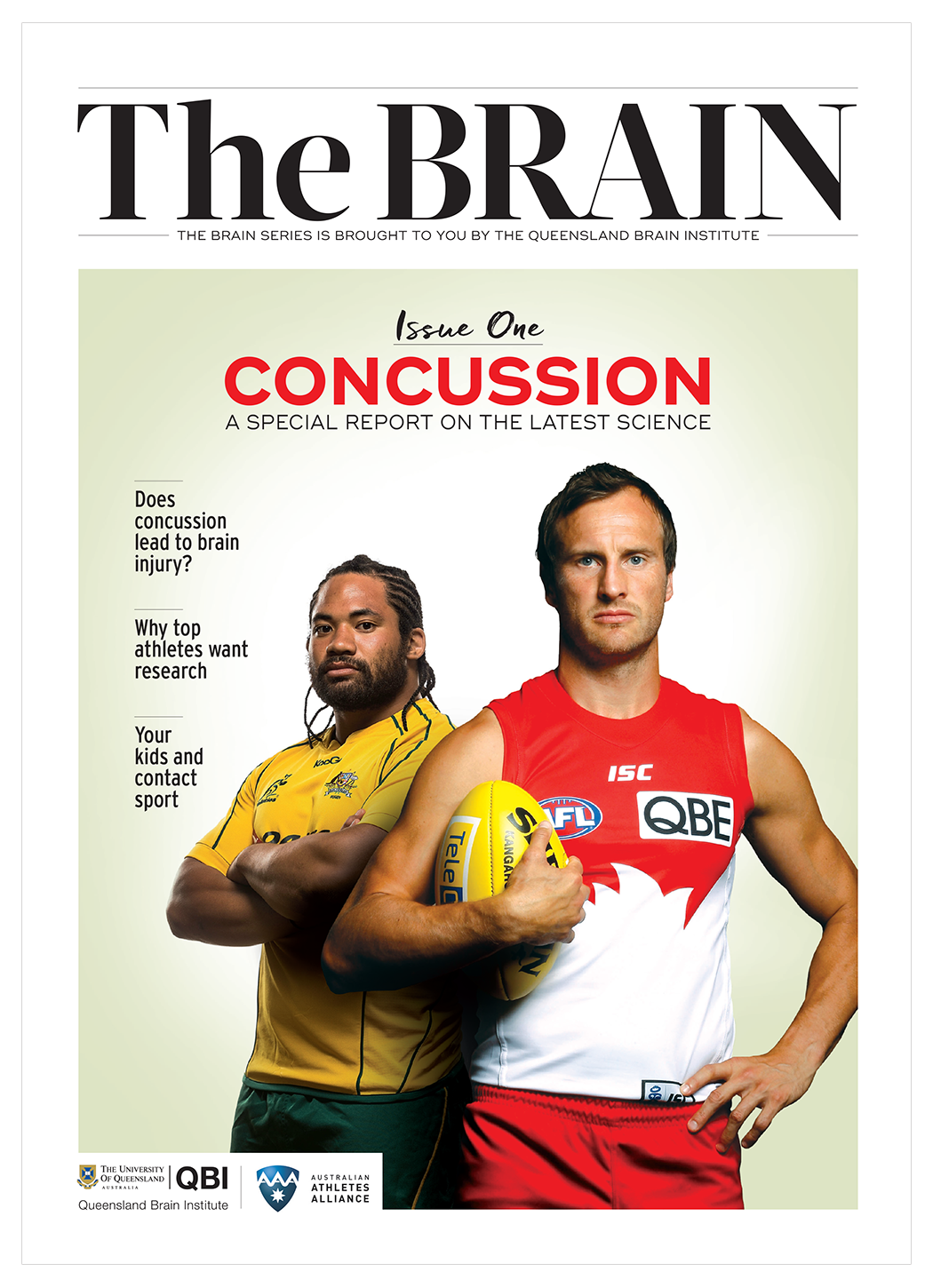Casey McGuire
Former Brisbane Broncos player Casey McGuire is no stranger to concussions, suffering many during his 14-year sporting career.
The memory of his worst concussion experience is fragmented, but he remembers the pain and the confusion following the collision.
“I had a head clash,” he says. “I don’t remember much, but I was dazed and confused. I had an eye socket injury that put me out of the game for a while.”
Concussions are a fear on many an athlete’s radar – it can stall careers, and sometimes, it can end them. Luckily for McGuire, there have been no observable long-term effects of his concussions; but the potential for issues to arise in the future is still a significant fear for him.
“I’m definitely concerned about my brain health in the future,” he says. “I’m unsure of the longer term impacts of head knocks and how it might affect my brain as I get older.”
This uncertainty is why research is so important, he says.
“Research into the mechanisms of concussion is incredibly important,” he says. “Especially how it links with other diseases, such as depression.”
McGuire became aware of concussion in the mid-2000s, but it is only recently that he has observed a shift in the culture around them. His advice to younger players borrows from the global campaign around concussion awareness – if in doubt, sit it out.
“Never play on after a concussion, no matter what your coach or teammates might be telling you,” he says. “You need to let your brain heal so that you can take care of yourself and play your best game.”
With concussion as a strong risk factor of contact sports, for players of the game it’s about balancing the love for the sport with the potential risk of concussion.
“While it would never stop me from playing sports, it’s important to take care of your brain,” McGuire says. “Take the appropriate measures, and always rest after a concussion, so the bruising in your brain can heal.”

